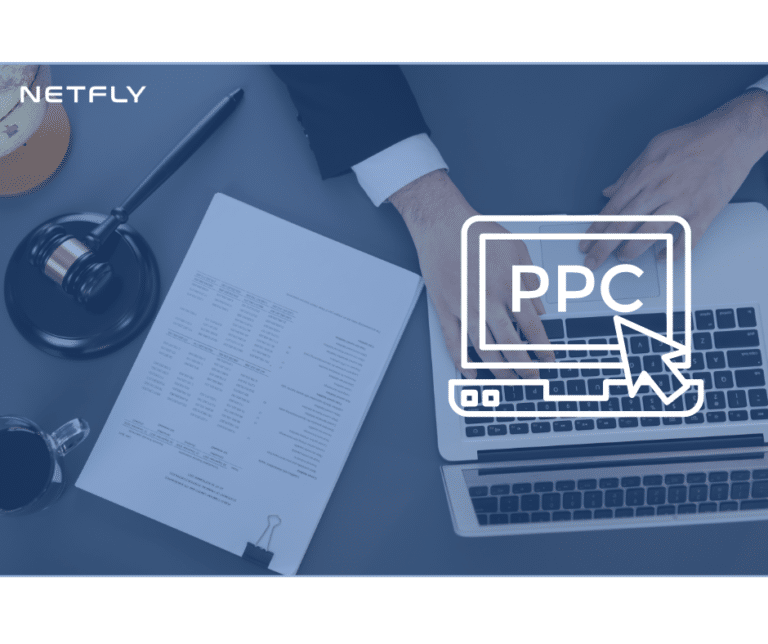Crafting a unique brand for a law firm isn’t just about a catchy logo or a memorable tagline; it’s an intricate process that requires a deep understanding of the market and a well-defined set of core values. Law firms need to analyze client needs and industry trends to carve out a niche that sets them apart. Establishing a voice that resonates with the target audience and ensuring consistent messaging across all channels are essential steps. But how do firms create a brand identity that truly stands out in a crowded marketplace? The answer lies in…
Key Takeaways
- Define and communicate your firm’s core values to build trust and integrity.
- Develop a unique voice tailored to your target audience for distinctive communication.
- Create a memorable brand identity with strategic visual elements like logo and color psychology.
- Ensure consistent messaging across all channels to strengthen credibility and client trust.
- Train staff to embody the firm’s core values and consistently reflect the brand in client interactions.
Understand Your Market
To build a unique brand, a law firm must thoroughly understand its market by analyzing client needs and industry trends. A comprehensive exploration into client demographics helps identify who the firm’s clients are, their legal needs, and how these needs evolve. This involves segmenting clients by age, income, industry, and legal requirements. By understanding these demographics, the firm can tailor its services to better meet client expectations and anticipate future needs.
Competitor analysis is equally important. It involves examining other law firms operating in the same market to understand their strengths, weaknesses, and market positioning. Analyzing competitors provides insights into what works and what doesn’t, helping the firm to carve out a niche. This analysis should include a review of competitors’ marketing strategies, service offerings, and client feedback. By identifying gaps in the market that competitors aren’t addressing, a law firm can position itself as a unique provider of specific legal services.
Understanding market trends is another essential component. Staying updated on the latest legal industry trends allows a firm to adapt and innovate. This can include new areas of law gaining prominence, technological advancements in legal practice, or shifts in client expectations. Law firms that proactively adjust to these trends will be better positioned to offer relevant and timely services.
Define Your Core Values
Establishing core values is essential for a law firm to define a clear identity and build trust with clients. Core values act as the foundation upon which a firm’s reputation is built. By prioritizing client confidentiality and adhering to stringent ethical standards, a law firm can distinguish itself in a competitive marketplace.
Client confidentiality is not just a legal obligation but a cornerstone of trust. Clients need assurance that their sensitive information will be handled with the utmost discretion. A law firm that emphasizes this core value sends a strong message about its commitment to client privacy and security. This dedication helps foster long-term relationships and client loyalty.
Ethical standards are equally important. They dictate how a firm conducts its business, treats its employees, and engages with clients and the wider community. Upholding high ethical standards ensures that the firm operates with integrity, transparency, and accountability. This not only protects the firm’s reputation but also enhances its credibility among clients and peers.
Moreover, defining core values helps in aligning the firm’s internal culture. It guides employees in their decision-making processes and interactions, ensuring that everyone is on the same page when it comes to priorities and expectations. This internal cohesion translates into a more consistent and reliable client experience.
Develop a Unique Voice
Crafting a distinctive and authentic voice is essential for a law firm to resonate with clients and differentiate itself in the legal landscape. This unique voice should reflect the firm’s core values and mission, guaranteeing consistent client communication across all platforms. Whether through emails, phone calls, or social media posts, a well-defined voice can build trust and foster a deeper connection with clients.
To develop this unique voice, a law firm must first understand its target audience. Are they corporate executives, small business owners, or individuals seeking personal legal advice? Knowing the audience allows the firm to tailor its tone and language appropriately. For instance, a corporate law firm might adopt a more formal and authoritative tone, while a family law practice might use a compassionate and approachable voice.
Consistency is key in client communication. Every piece of content, whether a blog post, newsletter, or social media update, should carry the same voice. This consistency helps in building a recognizable brand, making it easier for clients to connect with the firm. Additionally, an authentic voice on social media can enhance engagement, showing clients that the firm is not only knowledgeable but also approachable and trustworthy.
In addition, the firm’s voice should evolve with its growth and changes in the legal industry. Regularly reviewing and refining the voice ensures it remains relevant and effective. By developing a unique voice, a law firm can set itself apart, attract the right clients, and build lasting relationships based on trust and understanding. This strategic focus on communication can ultimately drive the firm’s success in a competitive market.
Design a Memorable Logo
A memorable logo serves as the visual cornerstone of a law firm’s brand identity, encapsulating its essence in a single image. It’s not just an artistic endeavor; it’s a strategic asset that communicates professionalism, trustworthiness, and expertise. Understanding color psychology and making informed typography choices are vital steps in designing a logo that leaves a lasting impression.
Color psychology plays a pivotal role in shaping perceptions. For law firms, colors like blue and navy often evoke feelings of trust, competence, and reliability. Meanwhile, black can convey sophistication and authority. It’s important to select colors that resonate with the firm’s core values and the emotional responses they wish to elicit from clients. Simplicity in color usage can also assist in creating a timeless and versatile logo, ensuring it looks good across various mediums, from business cards to websites.
Typography choices shouldn’t be overlooked either. The font style can speak volumes about a law firm’s character. Serif fonts, with their classic and traditional feel, are commonly used in the legal industry to convey stability and formality. On the other hand, sans-serif fonts can suggest modernity and accessibility, appealing to a more contemporary audience. The key is to choose a typeface that aligns with the firm’s identity and the message it aims to project.
Incorporating these elements thoughtfully ensures that the logo isn’t just visually appealing but also strategically aligned with the firm’s branding goals. By focusing on color psychology and typography choices, a law firm can create a logo that effectively differentiates itself in a competitive market, builds lasting client connections, and reinforces its unique brand identity.
Implement Consistent Messaging
Why is consistent messaging crucial for a law firm’s brand identity? In today’s competitive legal landscape, a law firm’s brand needs to be both recognizable and trustworthy. Consistent messaging across all communication channels guarantees that clients receive a clear and unified message about the firm’s values and services. This consistency builds credibility, fosters trust, and reinforces the firm’s professional image.
First and foremost, website content should reflect the firm’s core values and unique selling propositions. Every page, from the homepage to practice area descriptions, should communicate a cohesive narrative. Clients visiting the website should easily understand what the firm stands for and how it can address their legal needs. Inconsistent or contradictory messages can confuse potential clients and undermine the firm’s credibility.
Similarly, social media platforms offer an excellent opportunity to reinforce the firm’s brand identity. Regular posts should align with the firm’s overall messaging strategy and maintain a consistent tone and style. Whether it’s sharing legal insights, client testimonials, or firm news, each piece of content should contribute to a unified brand voice. Inconsistent messaging on social media can dilute the brand and weaken client trust.
Moreover, consistent messaging extends beyond digital platforms. Client interactions, email newsletters, and even office decor should all convey the same brand message. Training staff to understand and communicate the firm’s core values ensures that every client touchpoint reflects the firm’s identity.
Frequently Asked Questions
How Can I Effectively Use Social Media to Promote My Law Firm’s Brand?
To effectively use social media, he should develop a robust content strategy that showcases expertise and engages followers. Prioritize social engagement by responding to comments and sharing relevant updates, making the firm’s presence client-centric and authoritative.
What Role Does Client Feedback Play in Shaping My Law Firm’s Brand?
Client feedback plays a vital role in shaping a law firm’s brand. Client testimonials highlight strengths, while feedback surveys identify areas for improvement, ensuring the firm remains client-centric and strategically aligned with industry standards.
How Do I Measure the Success of My Law Firm’s Branding Efforts?
To measure his law firm’s branding success, he should analyze client retention rates and brand perception through surveys and reviews. Regularly evaluating these metrics provides insights into the firm’s market position and client satisfaction levels.
Can Partnerships With Other Businesses Enhance My Law Firm’s Brand?
Yes, partnerships with other businesses can enhance a law firm’s brand. Strategic alliances and co-branded campaigns amplify reach, build credibility, and attract a broader client base, ultimately creating a stronger, more client-centric brand presence.
What Are Some Cost-Effective Strategies for Branding a Small Law Firm?
To build a brand cost-effectively, a small law firm can leverage networking events to connect with potential clients and engage in community outreach to enhance visibility and trust. These strategies foster relationships and strengthen the firm’s reputation.
Conclusion
To sum up, constructing a distinctive brand for a law firm necessitates a strategic focus on understanding the market, defining core values, developing a unique voice, and designing a memorable logo. Consistent messaging across all channels guarantees the brand resonates with clients, setting the firm apart in a competitive landscape. By aligning these elements, law firms can establish a strong, credible presence that meets client needs and fosters long-term success.










